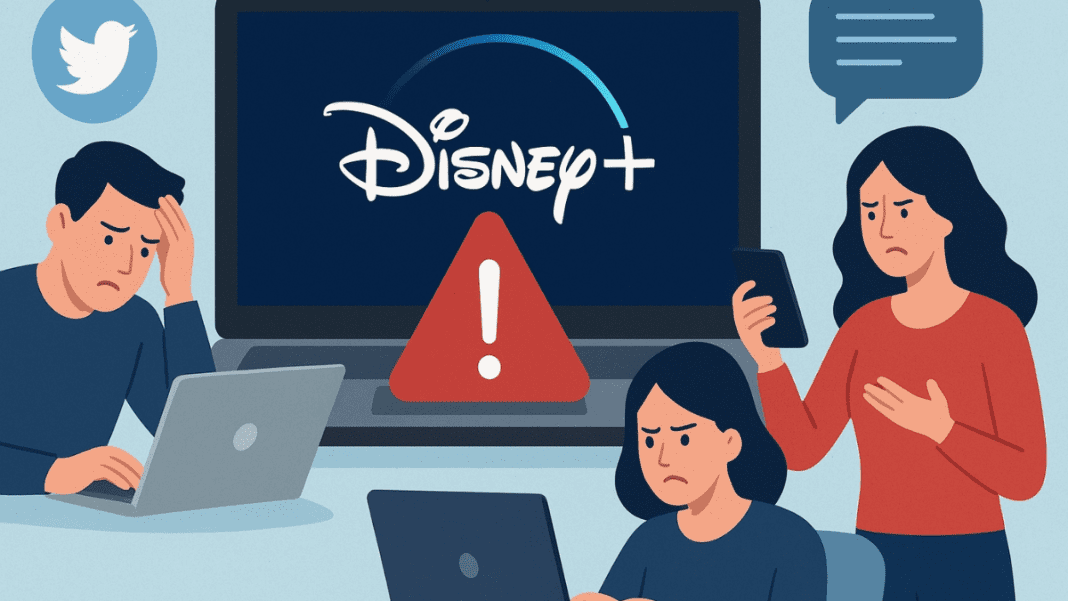Disney is facing a sudden storm after suspending Jimmy Kimmel Live! on September 17. The late-night show was pulled following host Jimmy Kimmel’s monologue about the killing of conservative activist Charlie Kirk. Kimmel suggested that Trump supporters were trying to reframe the shooter’s political ties, which sparked outrage among viewers, the FCC, and major ABC affiliates.
A wave of cancellations hits Disney+
In response, ABC replaced the show with reruns. But this move quickly turned into a much bigger problem. Accusations of censorship spread online, leading to an organized boycott against Disney and its streaming platforms, Disney+ and Hulu. Social media erupted with hashtags like #CancelDisneyPlus and #CancelHulu, with thousands of users sharing proof of their cancellations.
The backlash was not limited to social media. Lawmakers, advocacy groups, and unions also joined the debate, framing Disney’s decision as a threat to free expression rather than a simple scheduling choice. The reaction was swift and powerful, turning a single TV suspension into a full-blown corporate crisis.
Disney+ cancellation page crashes under pressure
As more people rushed to cancel their subscriptions, Disney’s systems began to crack under the weight. Many subscribers reported that the Disney+ cancellation page kept crashing, creating more frustration.
On Reddit, users described the issues in detail. One post read: “The page to cancel your Hulu/Disney+ subscription keeps crashing.” Another added that they faced looping logins and stalled forms. Some said they eventually managed to cancel after multiple attempts, while others were left unsure if their requests had gone through.
The platform appeared unprepared for the unusual surge in traffic. Screenshots of failed cancellations spread quickly, further fueling anger among customers who felt the company was not only silencing voices but also making it difficult for users to leave.
Disney pays $10M, adds “made-for-kids” labels on YouTube to safeguard children’s data
Many angry subscribers even shared step-by-step tips to help others get around the glitches. These included clearing cookies, switching browsers, and using Disney’s live chat option to confirm the cancellation. Users also advised keeping screenshots of every step as proof, since billing cycles could still charge them if cancellations failed to process.
The technical problems added another layer of negative publicity for Disney at a time when the company was already under intense political and social pressure.
Affiliate backlash and boycott calls
Disney’s troubles were not limited to viewers. Affiliate stations also pushed back strongly against ABC’s decision. Sinclair, one of the largest owners of local stations, refused to air new episodes of Jimmy Kimmel Live! and instead announced it would run a Charlie Kirk tribute special during the show’s time slot. Nexstar, another major broadcaster, also declined to air the program.
Other local stations took different approaches, with some replacing Kimmel’s slot with local news or alternative programming. This meant the suspension created ripple effects across the broadcast network, not just Disney’s streaming platforms.
On social media, users tied their cancellations directly to these affiliate actions. Many argued that Disney and ABC had bowed to political pressure, choosing to protect station relationships over defending their host’s free speech.
Gavin Newsom warns of coordinated effort after ABC halts Jimmy Kimmel Live citing FCC pressure
One Reddit user captured the mood, writing: “If they don’t apologize to high heavens to him, we all need to continue to boycott all Disney & ABC services, including Hulu.” Posts like these echoed across forums and Twitter, keeping the cancellation campaign alive.
Screenshots of canceled Disney+ and Hulu accounts became a symbol of protest. For many, canceling their subscription was seen as a direct way to voice opposition. Others declared they would never return, calling the suspension a breaking point in their relationship with the brand.
The uproar highlighted the scale of the backlash: from angry customers fighting with crashing cancellation pages, to affiliate networks openly rejecting ABC programming, and to advocacy groups framing the move as censorship.





